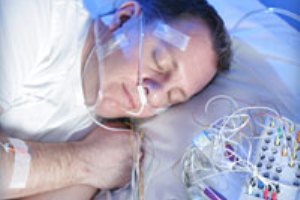Most of us have had trouble sleeping at one time or another. Under some circumstances, this is perfectly normal. However, if it becomes a regular occurrence, difficulty falling asleep or sleeping poorly is a problem that needs to be addressed. Chronic sleep disorders can lead to an increase in your risk of accidents and reduced job performance. They can also increase the likelihood of developing adverse health conditions such as high blood pressure, heart disease and stroke. Your doctor may suggest that you undergo a sleep study in order to see what is at the root of your sleep problems. 
Here are just a few of the problems that sleep studies are meant to diagnose:
* Sleep apnea – A condition that occurs when a person stops breathing for 10 seconds or more at a time while asleep. There may be a problem in the way brain signals are sent to the muscles responsible for breathing, or there could be some obstruction or narrowing of the breathing pathway.
* Nighttime insomnia – Possibly due to stress, hunger, depression or physical discomfort.
* Periodic limb movement disorder – Where the legs, feet or arms twitch repeatedly during sleep.
* Nighttime behavior problems – Includes sleepwalking, bedwetting and night terrors.
* Problems staying awake during the day – For example, those with narcolepsy.
* Problems sleeping during the day – If you work at night or in shifts, this can be an issue.
* Problems with your stages of sleep – Each night you should normally have four to five cycles of non-rapid eye movement sleep (NREM) and rapid eye movement sleep (REM). A sleep study can determine if there is an abnormality in this pattern.
There are four common types of sleep studies that may be used:
Multiple Sleep Latency Test (MSLT) – Determines how long it takes you to fall asleep and if you enter into the REM stage of sleep.
Maintenance of Wakefulness Test (MWT) – Determines if you can stay awake during your normal hours of wakefulness.
Polysomnogram – Records different body functions as you sleep, including blood levels of oxygen and carbon dioxide, eye movement, brain activity, breathing rhythm and rate, heart rhythm and rate, snoring, how air moves through your nose and mouth, belly and chest movement and general muscle movement.
Actigraphy – A device worn on the wrist similar to a watch that measures your movements both while asleep and while awake. It is used in cases where there is a problem with a person’s body clock.
A sleep study is commonly performed either in a hospital’s sleep lab or in a specialized facility. However, a sleep study can sometimes be performed in your home as well. Electrodes will be painlessly attached to your skin to record information as you sleep so as to determine where your sleep problem may lie. Although many people think they may not be able to sleep in such a situation, most have surprisingly little trouble falling asleep. Consult with your doctor if you think a sleep study may be of use. Chiropractic Care is also great for troubled sleepers. Contact Chicago Chiropractic now.
